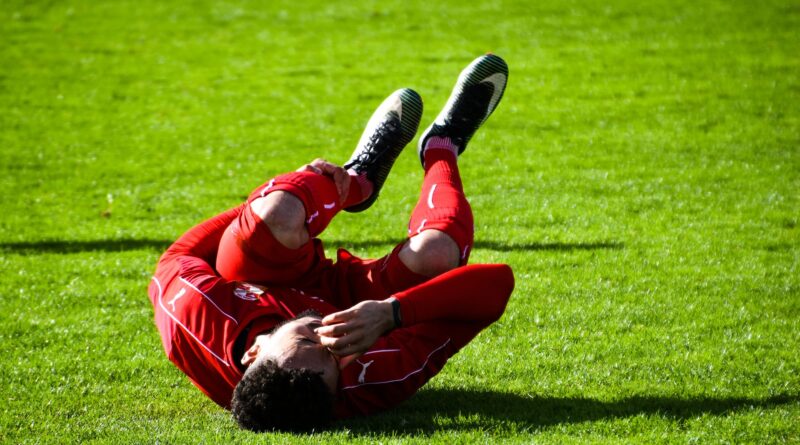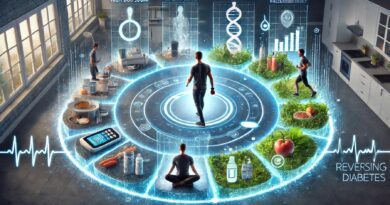How To Stop Muscle Cramps: What Causes Them
Muscle cramps are involuntary contractions of muscles that can be caused by various factors. They are more likely to occur during exercise, especially in hot or humid conditions or when you are dehydrated. Cramps can also occur when you are doing exercises that you are not used to or doing them incorrectly.
Certain medications can also increase your risk of cramping. To prevent muscle cramps, it is important to stay hydrated, maintain good posture, lift weights you can handle with proper form, and ensure you are getting enough protein in your diet. Exercises that stretch the muscles can also help prevent cramping. If you experience repeated attacks of painful leg cramps, it is advisable to consult a doctor to rule out any underlying medical conditions.
While muscle cramps can be uncomfortable and sometimes painful, they are usually not serious and can be easily prevented or managed.
Tips to help prevent muscle cramps during exercise:
- Stay hydrated: Dehydration can lead to muscle cramps, so it’s important to drink plenty of fluids before, during, and after exercise.
- Stretch properly: Before and after exercise, take the time to stretch your muscles properly. This can help prevent cramping and injury.
- Gradually increase intensity: Don’t push yourself too hard too fast. Gradually increase the intensity and duration of your workouts to give your body time to adjust.
- Eat a balanced diet: A diet that’s rich in vitamins and minerals, especially calcium, magnesium, and potassium, can help prevent muscle cramps.
- Wear proper shoes: Make sure you’re wearing the right shoes for your activity. Proper footwear can help support your muscles and prevent cramping.
If you do experience a muscle cramp during exercise, don’t panic. Stop what you’re doing and gently stretch the affected muscle. Massage the area to help increase blood flow and relieve pain. If the cramp persists, try applying heat or cold to the area or taking an over-the-counter pain reliever. If the cramps are frequent and severe, it may be worth consulting a healthcare professional to rule out any underlying medical conditions.
Factors which causes muscle cramps?
Lactic acid buildup is one of the common causes of muscle cramps during or after exercise. When you exercise, your muscles use glucose as a source of energy. When your body cannot get enough oxygen to your muscles, it starts to break down glucose without oxygen, and this produces lactic acid. Lactic acid can accumulate in the muscles, causing them to feel sore, weak, and cramped.
Sitting with your legs raised can help to improve blood circulation and promote the removal of lactic acid from the muscles. It’s also important to stay hydrated during exercise, as dehydration can worsen muscle cramps. Stretching before and after exercise can also help to prevent muscle cramps by warming up the muscles and increasing flexibility.
Muscle cramps can be caused by a variety of factors, including:
- Dehydration: A lack of fluids and electrolytes in the body can lead to muscle cramps.
- Overuse of muscles: Exercising for too long or too intensely can cause muscle fatigue and lead to cramps.
- Poor blood circulation: Poor blood flow to the muscles can cause them to cramp.
- Electrolyte imbalances: An imbalance of important minerals such as potassium, calcium, magnesium, and sodium can cause muscle cramps.
- Nerve compression: Compression of nerves can cause cramping in the affected muscles.
- Medications: Certain medications, such as diuretics and cholesterol-lowering drugs, can increase the risk of muscle cramps.
- Medical conditions: Underlying medical conditions, such as diabetes, liver disease, or thyroid disorders, can also cause muscle cramps.
- In women during menstruation, levels of estrogen and progesterone fluctuate, which can lead to changes in fluid balance and electrolyte levels in the body, potentially contributing to muscle cramps
- Hormonal changes during menstruation and menopause can contribute to muscle cramps in some women. Additionally, women going through menopause may experience hormonal fluctuations that can also contribute to muscle cramps.
- Congestive heart failure (CHF) can lead to electrolyte imbalances such as low potassium, magnesium, and calcium levels, which can cause muscle cramps. This is because these electrolytes play an important role in muscle function, and when they are imbalanced, it can lead to muscle cramps and weakness. Additionally, CHF can cause poor circulation and oxygen delivery to the muscles, which can also contribute to muscle cramps.
Why to get worried about muscle cramps?
In most cases, muscle cramps are not a cause for concern and can be relieved by stretching, massaging, or applying heat to the affected area. However, there are some situations where you may need to seek medical attention for your leg cramps:
- The cramps are severe and frequent, and interfere with your daily activities and quality of life.
- You have muscle weakness, numbness or tingling in the affected area.
- The cramps occur after starting a new medication.
- The cramps are not relieved by stretching or other home remedies.
- You have swelling, redness, or warmth in the affected area.
- You have a history of kidney disease, heart disease, or other chronic medical conditions.
If you experience any of these symptoms, it is best to consult your doctor for proper evaluation and treatment.
Is there any different cause and concerns of night muscle cramps?
Many of our patient in clinical practice comes with the complaints of night muscle cramps. It happens even on rest and not related to work overload or day activities.
There are few medical conditions which can also cause Muscle cramps, these are :-
- Diabetic keto acidosis (DKA)
- Congestive cardiac failure
- Hypothyroidism
- Renal failure
Another major cause of leg muscle cramps at night is Potassium Deficiency. Usually combination of potassium and magnesium is available. body.
Always consult doctor before taking such supplements blindly.
Severe Anemia– Low blood hemoglobin can also be a potential cause of muscle cramps , its most likely due to lack of oxygen in blood.
Also few medications can also cause leg muscle cramps at night which are :-
- Quinine,
- Chemotherapy drugs,
- Diuretics –( water pill) .
If you have a long history of leg muscle cramps during night, then you should consult your doctor immediately to identify the cause.
How to Prevent Night Leg Cramps?
There are several things you can try to get rid of leg cramps at night, including:
- Stretching: Stretching the affected muscle can often provide relief from the cramp. Straighten your leg and gently flex your foot towards your head.
- Massage: Massaging the cramped muscle can help to relax it and relieve the cramp.
- Heat or cold: Applying a heat pack or cold compress to the affected area can help to relax the muscle and reduce pain.
- Hydration: Make sure you drink enough water throughout the day to prevent dehydration, which can contribute to muscle cramps.
- Electrolyte supplements: If you are deficient in certain electrolytes like potassium or magnesium, taking supplements can help prevent cramps.
- Medication: Over-the-counter pain relievers like ibuprofen or acetaminophen can help to reduce pain associated with leg cramps.
If you experience frequent leg cramps at night, it’s important to speak with your doctor to determine the underlying cause and develop a treatment plan.
Medical Treatment for Muscle Cramps :-
There are several over-the-counter and prescription medications that can be used to treat muscle cramps:
- Pain relievers: Over-the-counter pain relievers like ibuprofen, acetaminophen, and naproxen can help to reduce pain and inflammation associated with muscle cramps.
- Muscle relaxants: Prescription muscle relaxants like cyclobenzaprine and tizanidine can help to relieve muscle tension and reduce the frequency and severity of muscle cramps.
- Anticonvulsants: Medications like gabapentin and pregabalin, which are used to treat seizures and nerve pain, can also be effective in reducing the frequency and severity of muscle cramps.
- Calcium channel blockers: These medications, which are commonly used to treat high blood pressure, can also be effective in preventing muscle cramps by improving blood flow to the affected area.
- Vitamin E- Evion 400 .
- Magnesium supplements.
- Electrolyte powders like Vital EZ, Enerzal.
- Liniments like Arnopen liniment, Myostaal liniment, Pyroflex liniment
- Ointments like Arthrella, Arnopen, Relaxyl
It is important to note that medication should only be used under the guidance of a healthcare professional, and only after non-pharmacological methods have been tried and have not been successful in reducing the frequency or severity of muscle cramps.
4 Exercises to Stop Cramping
Muscle cramping can be quite painful and disruptive to daily life. Here are 4 exercises that may help prevent or stop cramping:
- Stretching: Stretching the muscle that is cramping can often help alleviate the pain. Gently stretch the affected muscle and hold the stretch for 15-30 seconds. Repeat this several times.
- Massage: Massaging the cramped muscle can help increase blood flow and reduce pain. Use your hands or a foam roller to gently massage the affected area.
- Hydration: Dehydration can often cause muscle cramping, so staying properly hydrated is important. Make sure you are drinking enough water and electrolyte-rich fluids, especially if you are exercising or in hot weather.
- Strength training: Weak muscles can be more prone to cramping, so incorporating strength training into your exercise routine can help prevent cramping. Focus on exercises that target the muscles that commonly cramp, such as the calves or hamstrings.
Remember to always consult with a healthcare professional if you experience frequent or severe cramping, as it may be a sign of an underlying medical condition.
I hope this article is help you to understand the muscle cramps and what are the preventable things which you can do




